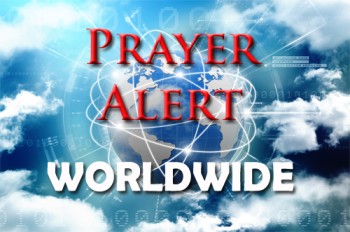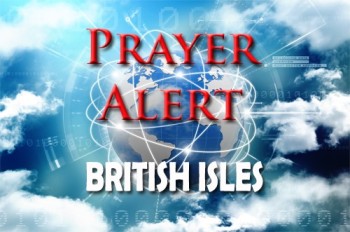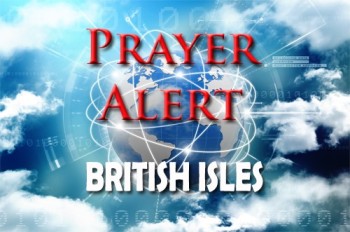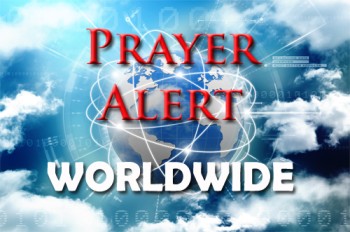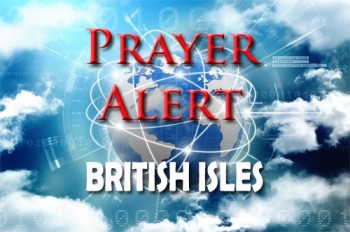Displaying items by tag: Religion
Iraq / Lebanon: headed down a chaotic path
Governments in both Iraq and Lebanon struggle to function and pass legislation. Political parties tied to ethnic and religious groups vie for control. Iran-backed militias hold more power than the military. There are many parallels between Lebanon, Syria, and Iraq because the nation-state borders were drawn around them by colonial nations around a hundred years ago. Ethnic groups thrown together by these borders often find it difficult to make their own voices heard and cooperate. It is an ongoing process that is only successful if there has been a dictator or authoritarian government. There is government corruption. Young Iraqis are dissatisfied and are opening their eyes to opportunities for truth. South Iraq is seeing a time of harvest among the Shia community. Even though they face persecution by larger religious groups, they are boldly proclaiming the Gospel repeatedly to all peoples and all backgrounds or ethnic minorities or majorities in their communities. God is doing amazing things in the south.
India: prayer needs
India’s religious diversity is under threat from the spread of religious intolerance as well as government policies and laws. The Rashtriya Swayamsevak Sangh arm of the BJP promotes a Hindu nationalist agenda and is dividing communities on religious grounds, leaving the nation’s religious minorities unsettled about their future. Pray for India’s government today: transform their hearts to treat every individual and community with respect and to protect their right to freedom of religion or belief. Pray also that the appointment of India’s first president from an indigenous community, President Draupadi Murmu, will bring positive changes for all India’s indigenous communities. Heavenly Father, we pray for Your protection over all the nation’s religious minorities. We pray that those in power will respect and acknowledge the right of everyone to freedom of religion or belief. Where there is unrest, bring peace, and where there is persecution, we ask for impartiality.
Qatar: World Cup prayer request
Christians in Qatar are inviting the global church to join with them in praying for a move of the Holy Spirit during the World Cup, which begins on 20 November. The country is number 18 on the World Watch List. Although foreign Christians can worship in relative freedom, Qatari Christians are forbidden from having their own churches or even entering a church. Converts can also face extreme pressure from their family and community. Despite these challenges, the church in Qatar is growing - and there is the expectation that it will continue to do so during the World Cup. ‘We’re expecting a big move of the Holy Spirit during the World Cup,’ says a church leader for expats and migrant workers. ‘We already see the move of the Holy Spirit in Qatar. God is visiting people in their dreams. God is doing miracles. God is doing healings among the Qatari people.’
North Korea: prayer needs
Pyongyang, North Korea's capital, once called ‘Jerusalem of the East,’ can no longer claim that title as the Juche doctrine is now its religion, with the Kims as its deities. Christian church information is limited. It survives as an underground church where meetings are held in secret. If members are caught, they will go to prison or a labour camp. Intense media control means that few North Koreans have heard the name of Jesus. The government dictates people’s lifestyle through generic provisions and limiting personal differences. Much of North Korea is underdeveloped., and natural disasters and military spending have strapped the economy. In the past fifteen years, two million people have died due to food shortages. The country relies on foreign aid to feed its people. North Korea is accused of torture, slavery, public executions, forced abortions, infanticides, as well as detaining possibly as many as 200,000 political prisoners.
Politicians call for a boost to RE
A report has found recruitment for secondary school RE teachers was 20% below the level required. A Westminster debate was called by Conservative MP Martin Vickers, as many schools deliver the bare minimum of religious education. During the debate Conservative MPs spoke highly of RE and urged the Government to do more to protect it. Stephen Morgan, the shadow education minister, was appalled over government failure to introduce a national plan for RE, saying that an education in religion and worldviews is an important part of the school curriculum. The debate highlighted the importance of RE and the need for more specialist teacher training and recruitment.
CofE bishops discuss gay marriage
A recent meeting of the College of Bishops discussed the next steps of the Living in Love and Faith (LLF) discernment process. LLF entails churches discussing whether to allow same-sex marriage in the CofE. One bishop, Steven Croft, published a 52-page essay on 3 November, detailing why he is calling for the Church to back same-sex marriage. It was suggested that when bishops engage with the media, they honour their pledge to be open about their diversity of perspectives. Some want the Church to be more inclusive with regards to same-sex marriage: others believe allowing gay marriage in Church would depart from Biblical teaching. Their debates will be brought to February’s General Synod for decision-making.
Jeremy Hunt, new chancellor of the exchequer
55-year-old Jeremy Hunt, a Christian, had previously been former foreign secretary and health secretary. He is a big supporter of the cause of freedom of religion or belief. In 2018, while foreign secretary, he commissioned an independent review into Foreign Office support for persecuted Christians. The report, by the Bishop of Truro, presented 22 recommendations for the Government to make changes in policy and practice to protect freedom of religion and belief around the world. Mr Hunt goes to church on Sundays and sometimes receives communion at a midweek lunch-hour celebration in the House of Commons. Asked about his faith in 2019, he said, ‘I sometimes pray, like regular Church of England folk: it's part of my life and my identity, but I don't think it defines my politics.’
Russia: Father Grigory, prominent anti-war priest
When the leader of the Russian Orthodox Church is the most vocal supporter of Moscow's conflict in Ukraine, calling the conflict ‘war’ can land you in jail; it takes courage to speak out. But Father Grigory has been doing that ever since the Kremlin first set its sights on Ukraine. Once a Russian Orthodox priest, he has now set out to prove that not every Russian stands behind Putin's acts of aggression. Grigory's number one priority is helping the hundreds of thousands of Ukrainian refugees trapped across Russia since February. His religious group, the Russian Apostolic Church, has assisted 7,000 refugees over the past eight months. He said, ‘In April our organisation and the St Petersburg parish opened a centre for helping refugees. Many refugees need different types of help. Some need tickets to leave Russia, some need clothes or various medicines. So we do all that we can do to help.’ Grigory is adamant that supporting an aggressive war goes against the tenets of true faith.
Nigeria: dangers of being religious in a religious nation
Religious intolerance in one of the most religious countries in Africa is dominating debates ahead of next year's elections. It is rare to find anyone not devout in the mainly Muslim north or mainly Christian south. There is no official religion. Although they are guaranteed religious freedom the religious minorities live in fear. ‘We don't have freedom to worship. You are in trouble if you dress like a Muslim. We hide our religion.’ said Ibrahim, a Muslim in southern Nigeria. Obinna Nnadi once lived in the north but felt it was not safe to practise Christianity, so she moved her family south. Islamic law is in place in much of northern Nigeria. Rev Caleb Ahima, vice-president of the Christian Association of Nigeria, acknowledges that religious discrimination is a consequence of location. Meanwhile Odinani, the African traditional religion before Christianity, is making a comeback with younger people who are also facing intolerance and aggression.
Archbishop urged to scrap transgender guidance
Following Nigel and Sally Rowe’s recent legal victory against the department for education, which led to a £22,000 settlement for legal costs and a commitment from the Government to reform its transgender policies, they have urged the Archbishop of Canterbury to scrap the ‘Valuing All God's Children' (VAGC) guidance in CofE primary schools. This says children as young as five should be affirmed if they want to identify as the opposite gender. The Rowes want the archbishop to do this so that staff and children in schools are properly safeguarded and protected from harmful transgender ideology and practice. They also want to meet him to discuss these points and what the CofE can do about them. Recently a charity considered ‘a reliable source on transgenderism for CofE schools’ was found to be offering chest binders to children without parental knowledge.


